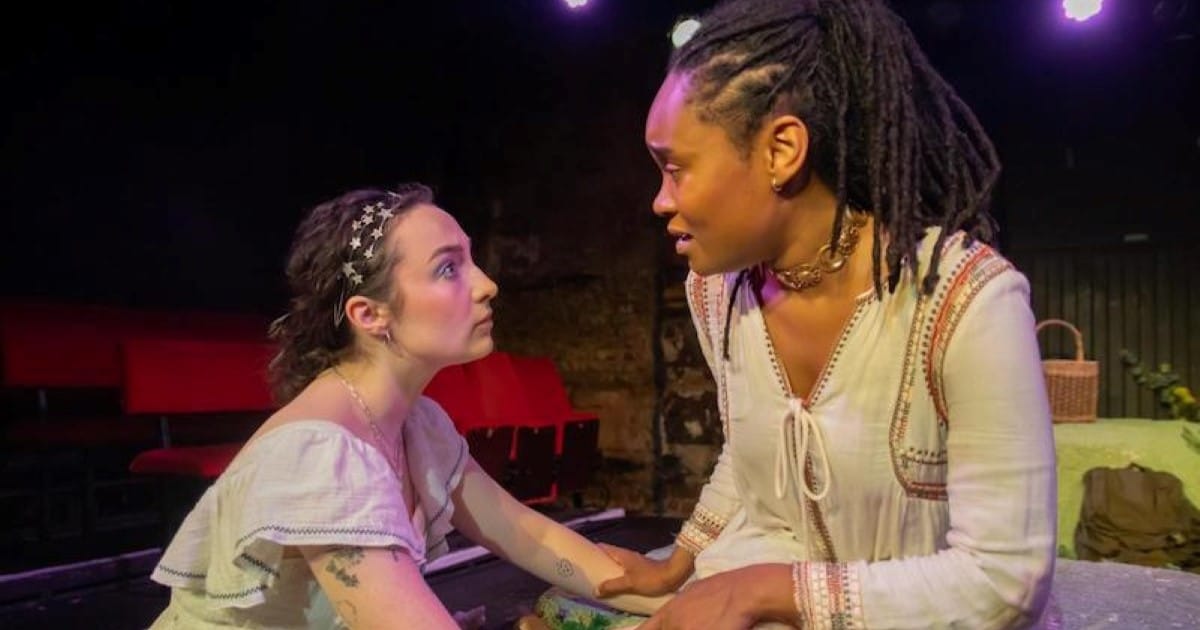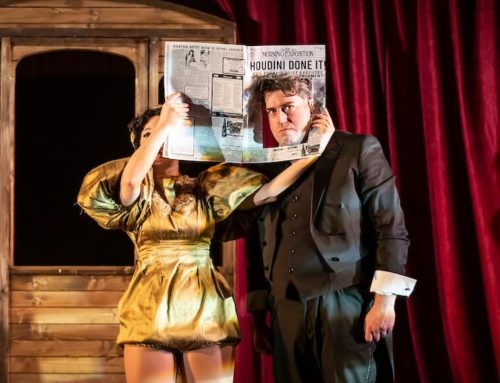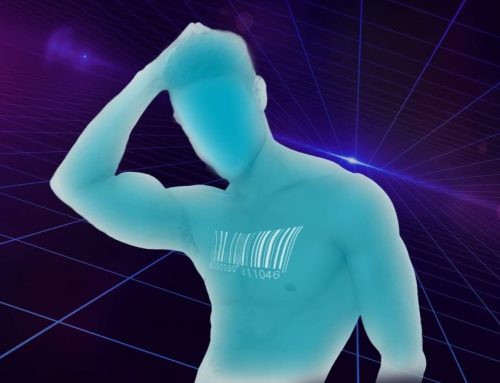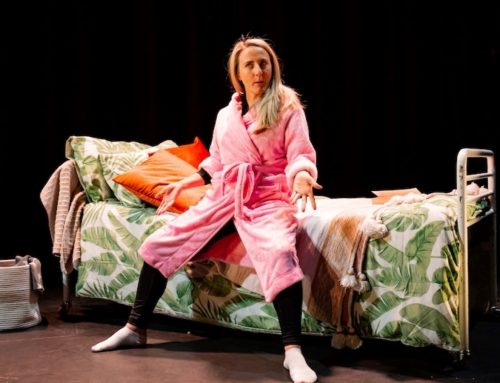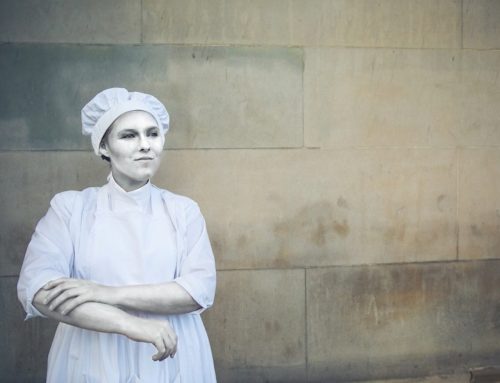The collapse of a relationship can sometimes feel like the end of the world. As star-crossed lovers across the centuries have come to learn “the world is constantly ending all the time”, each broken-hearted duo “living in their own personal apocalypse”. In her ambitious and enjoyably whacky comedy drama, 1000 Ways the World Will End (& How it Starts Again), writer Alice Flynn ups the ante and sets the impending demise of a relationship within the context of what might actually be a real-life apocalypse. She repeats the story three times, time-shifted over three different epochs. Think a queer, non-linear Groundhog Day, set in a kind of Shakespearean forest, replete with mystic magical forces, and fairies both malignant and benign.
It is the year 934. Viking clan chief’s daughter Astrid (Kalifa Taylor) is on a quest to find her handmaiden, bodyguard, and lover Yrsa (Phoebe Creswell), who has mysteriously skedaddled from the ancestral village. When the two finally connect a none-too-pleased Astrid demands to know why her lover took flight. Murderous secrets emerge that will rock their bond to its core. In the background the earth trembles and the sky spits lightening. Is this Ragnarök: the catastrophic series of natural disasters that portends the end of the world?
Fast forward to 1780. Local rich-girl Aster, out foraging for mushrooms in the forest, bumps into guileless villager Ursula. With the aim of summoning-up the devil (a metaphor here for queer love) the pair soon conspire in an act of witchcraft. But will they be able to control the diabolical forces their handiwork has unleashed? And do those ominous smoking forest fires really presage Rapture, the second coming of Christ?
Fast forward again 2025. Astrophysicist Sula knows she “sounds like a conspiracy bro” but manages to convince long-suffering girlfriend Astra that tomorrow’s solar flares might just lead to the end of civilisation. The two head deep into the forest in the hopes of riding out Armageddon. But there is a betrayal in sight. Will these two unlucky lovers ever learn to break free from the forces that are driving them apart, or will the doom loop of destruction continue for another thousand years?
Flynn’s narrative time shifts, and Alice Robb’s efficient direction keep the momentum flowing just fast enough to avoid too close an interrogation of the (periodically loopy) plot. The show has something to say about the enduring ability of queer women to find love and to create space for themselves in the face of cultural homophobia, power differentials, and male privilege. Taylor is great as the confident, in-your-face Astrid. “The world won’t end if two queer women have sex,” she shouts in sheer frustration at Yrsa towards the show’s denouement. You will be nodding along with that. Cresswell impresses too as the diffident, troubled Yrsa who just cannot seem to get things right.
Writer: Alice Flynn
Director: Alice Robb
Reviewer: John Cutler
More Recent Reviews
The King of Hollywood. White Bear Theatre.
Douglas Fairbanks was a groundbreaking figure in early American cinema. Celebrated for his larger-than-life screen presence and athletic prowess, [...]
Gay Pride and No Prejudice. Union Theatre
Queer-inspired reimaginations of Jane Austen’s Pride and Prejudice are a more common species than one might initially imagine. Hollywood [...]
Knife on the Table. Cockpit Theatre.
Knife on the Table, Jonathan Brown’s sober ensemble piece about power struggles, knife violence, and relationships in and around [...]


